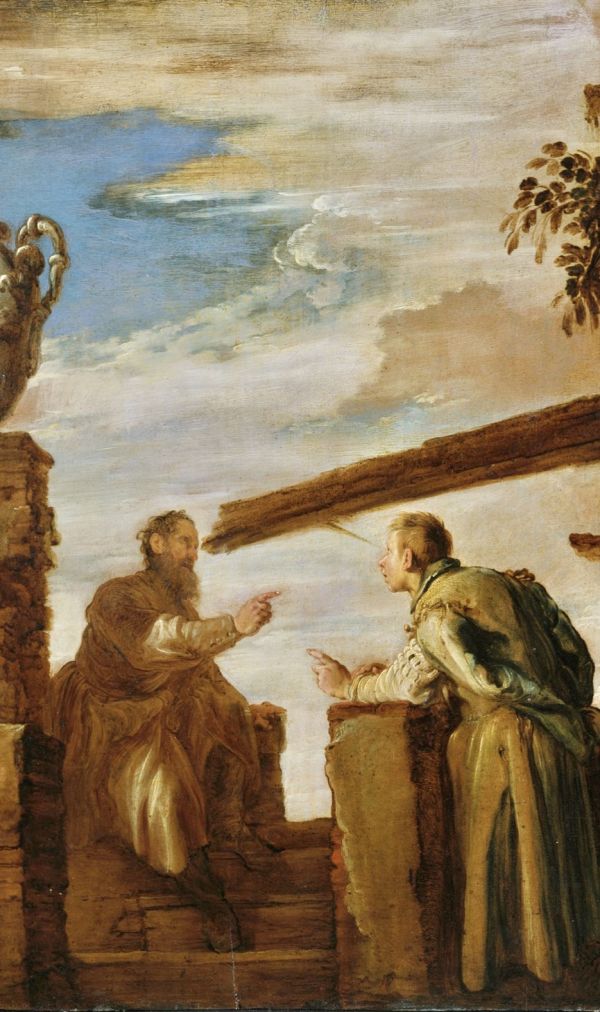For a transparent coexistence
(Mt 7:1-5)
The Sermon on the Mount (Mt 5-7) lists catechesis on salient questions of living in the communities of Galilee and Syria - composed of Jews converted to Christ.
There was no lack of contempt on the part of the veterans for the new ones who appeared at the threshold of the churches - for their way of life far from the recognized norm, or even for trifles.
«Theatrant» (v.5) is one who thinks big about himself and always has the ability to look around to convince himself that he can excel - without putting himself in an attitude of respect for the enigma of life, where instead the burdens can turn into progress.
The objective view of ourselves and our personal growth - often resulting from deviations from stereotypes or nomenclatures - can make us benevolent. It can convince of due respect and even deference for the ‘more’ that surrounds us and calls.
The legalism of plastered details leads in fact to the neglect of the essential, in mutual love (cf. vv.3-5).
In the 70s of the first century the awareness of the different familiar and serene relationship with God - and the new way of living his Law - was questioning believers and involved relations with community’ sisters and brothers.
After having introduced both the new criteria of ‘Greater Justice’ and the recovery of the principles of Creation, the evangelist suggests some essential ideas for the internal quality of life of the fraternities.
The cultural background of older church members was fiercely legalistic. This baggage didn’t favour the freedom of mutual evaluations: coexistence had to be more transparent.
To encourage communion, Mt wants to present a free and tranquil Jesus - not superhuman, nor idol or model: vice versa, genuine Person; not unilateral Master.
In fact, he knew how to recover and wanted to enhance all the individual sensitivities, to allow the expression of friendship and enrichment in every human reality.
Only its strong ‘root’ in the relationship with the Father had to be of sacred example for each one, and inviolable comparison for everyone, always.
In Palestine the Lord had not shown himself to be fundamentalist.
«Trust» in the Father and in his «life to come» gave the Son himself the certainty that he could open completely to situations and to everyone - whatever circumstances he found himself in.
A convivial openness to differences, in order not to block the gates and the outcome of the Novelty, in the Spirit of the Beatitudes.
This is because we have been called to make our existence exponential and that of all, not to dampen it with preconceptions and relative convictions.
We accept Providence, ourselves and the others as they are: aware that there is a precious secret, an unprecedented destiny, a Mystery that surpasses us... behind every event, in each of our own ‘intimate faces’ [supported by the Father], or in the brother even if eccentric.
The ways of following that resonate deep in the heart are as varied as people, events, rhythms commensurate with the soul, ages.
They embrace the same Proposal - without losing the enduring Mystery or any link in this versatility.
Only here... real World, Person, Nature and Eternity are allied.
[Monday 12th wk. in O.T. June 23, 2025]


